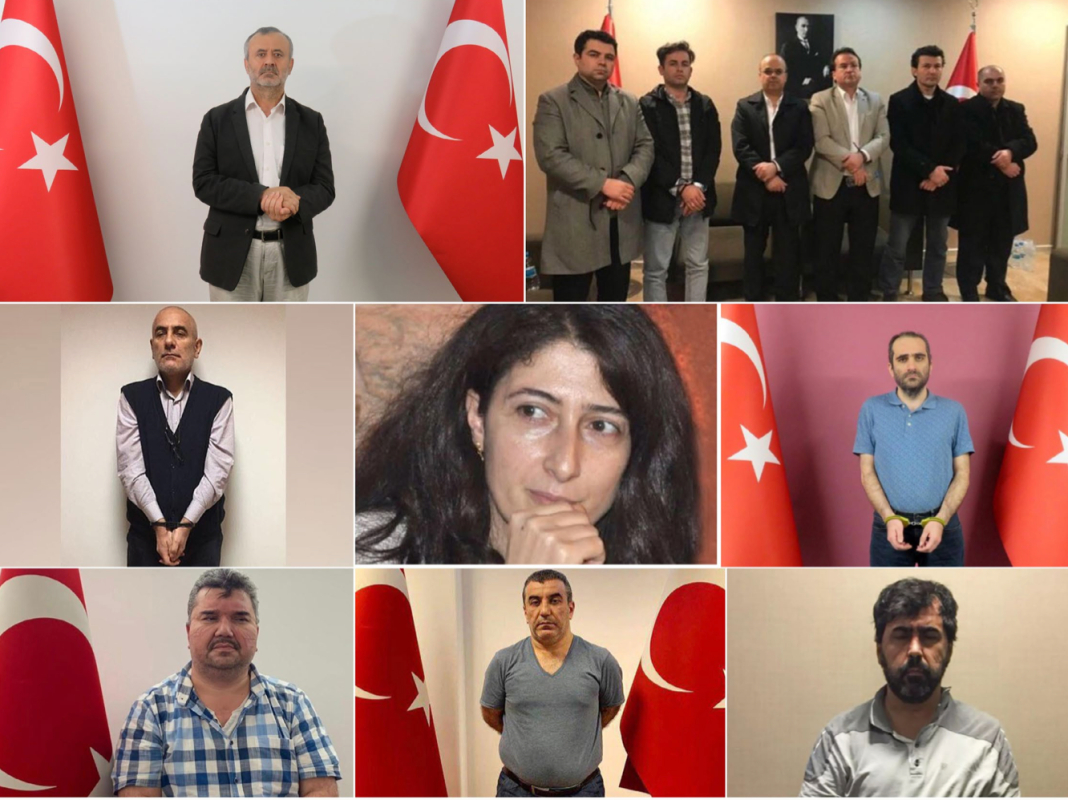In its annual human rights report on Turkey, the US State Department has included the Turkish government’s transnational repression tactics to suppress its critics living abroad, the Stockholm Center for Freedom reported.
The report identified the tactics as extraterritorial killing, kidnapping and forced returns; threats, harassment, surveillance and coercion; misuse of international law enforcement tools; and efforts to control mobility.
“The government engaged in a worldwide effort to apprehend suspected members of the Gulen movement. There were credible reports the government exerted bilateral pressure on other countries to take adverse action against specific individuals, at times without due process,” the report said.
The department issued its 2022 Country Reports on Human Rights Practices on March 20 with a subsection on Turkey in which it details human rights violations in the country.
The report listed credible reports of arbitrary killings; suspicious deaths of persons in custody; forced disappearances; torture; arbitrary arrest and continued detention of tens of thousands of persons, including opposition politicians and former members of parliament, lawyers, journalists, human rights activists and an employee of the US Mission, for purported ties to “terrorist” groups or peaceful legitimate speech; and political prisoners, including elected officials, as being among the significant human rights issues in the country.
Last week, four members of the US Senate Foreign Relations Committee introduced the Transnational Repression Policy Act to keep authoritarian governments in check and prevent their “long arm” from impeding human rights abroad. This bill would require the secretary of state along with other relevant heads of Federal departments and agencies to present a report to Congress on a US strategy to address transnational repression and enhance international awareness of it.
Since a coup attempt in July 2016 the government of Turkish President Recep Tayyip Erdoğan has employed extralegal methods to secure the return of its critics after its official extradition requests were denied.
In a joint letter UN rapporteurs accused the Turkish government of engaging in the systematic practice of state-sponsored extraterritorial abductions and forcible returns to Turkey, with at least 100 Turkish nationals renditioned from multiple states to Turkey.
Most recently Turkey’s National Intelligence Organization (MİT) confirmed in its annual report that it had conducted operations for the forcible return of more than 100 people with alleged links to the Gülen movement.
“… [M]ore than 100 members of the [Gülen movement] from different countries were brought to Turkey as a result of the [agency’s] increased operational capacity abroad,” MİT’s 2022 report said.
Erdoğan has been targeting followers of the Gülen movement, inspired by Turkish Muslim cleric Fethullah Gülen, since the corruption investigations of December 17-25, 2013, which implicated then-prime minister Erdoğan, his family members and his inner circle.
Dismissing the investigations as a Gülenist coup and conspiracy against his government, Erdoğan designated the movement as a terrorist organization and began to target its members. He intensified the crackdown on the movement following the abortive putsch in 2016 that he accused Gülen of masterminding. Gülen and the movement strongly deny involvement in the coup attempt or any terrorist activity.
Vice President Fuat Oktay earlier said in a speech in parliament that Turkish agents had conducted “diplomacy” with their counterparts in countries where Turkish nationals were abducted.
Turkey’s efforts at transnational repression against critics abroad do not seem to be winding down. Most recently, Uğur Demirok, a Turkish businessman who went missing in Azerbaijan on September 6, was abducted and illegally brought to Turkey by MİT.
An SCF report, released in October, 2021 and titled “Turkey’s Transnational Repression: Abduction, Rendition and Forcible Return of Erdoğan Critics,” focused on how the Turkish government under President Erdoğan has used extrajudicial and illegal methods for the forcible transfer to Turkey of its citizens abroad.
Another SCF report, “Turkey’s Transnational Repression: Abuse of asset freezing mechanisms under the pretext of prevention of terrorist financing,” underlined that the Turkish government’s decisions to freeze assets based on the pretext of preventing the financing of terrorism have been weaponized to suppress critics abroad as a further means of Turkey’s transnational repression.
In its report released in August 2021, SCF shed light on the Turkish government’s abuse of INTERPOL to target political opponents who have done nothing more than criticize the government.
In several of these cases the UN Working Group on Arbitrary Detention (WGAD) concluded that the arrest, detention and forced transfer to Turkey of Turkish nationals were arbitrary and in violation of international human rights norms and standards.
Dr. Dana Moss, who developed the term “transnational repression,” in an interview with SCF called on the United Nations to appoint a special rapporteur to study the practice. “I would like to see the United Nations, the EU human rights arms, bringing more attention to this issue. Perhaps the UN could appoint a special rapporteur to study the issue,” she said.

